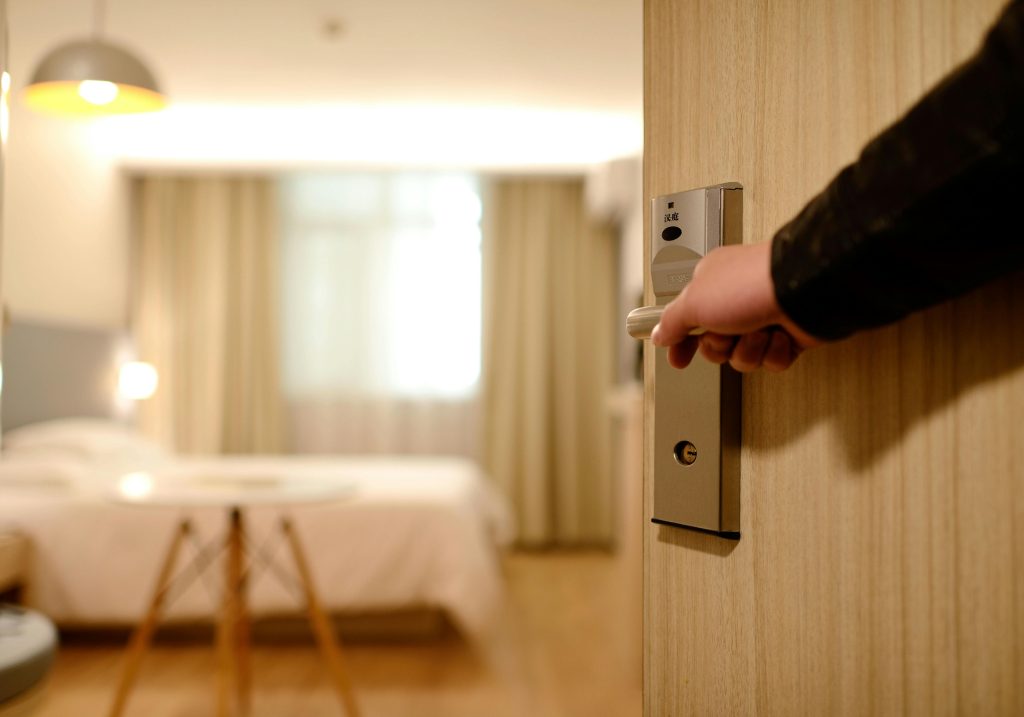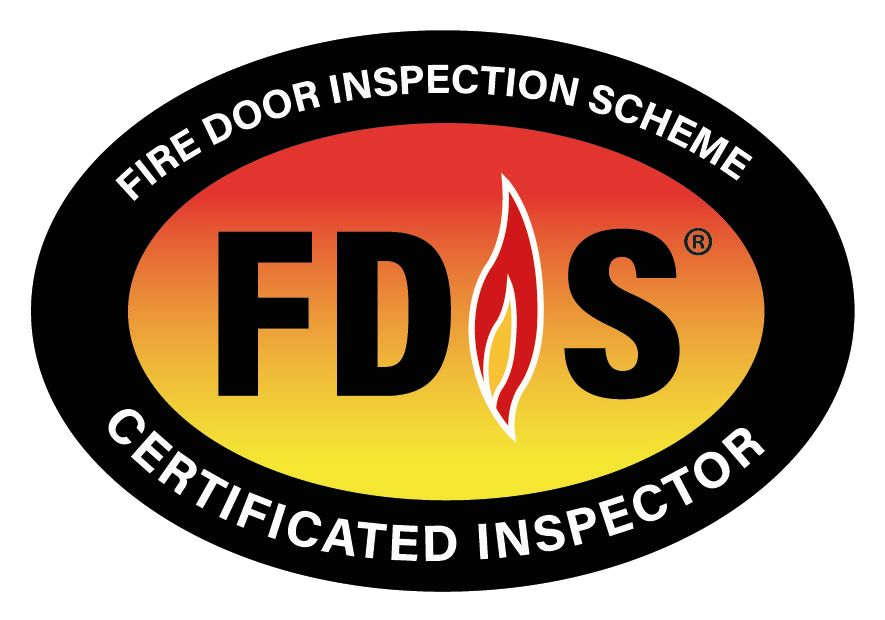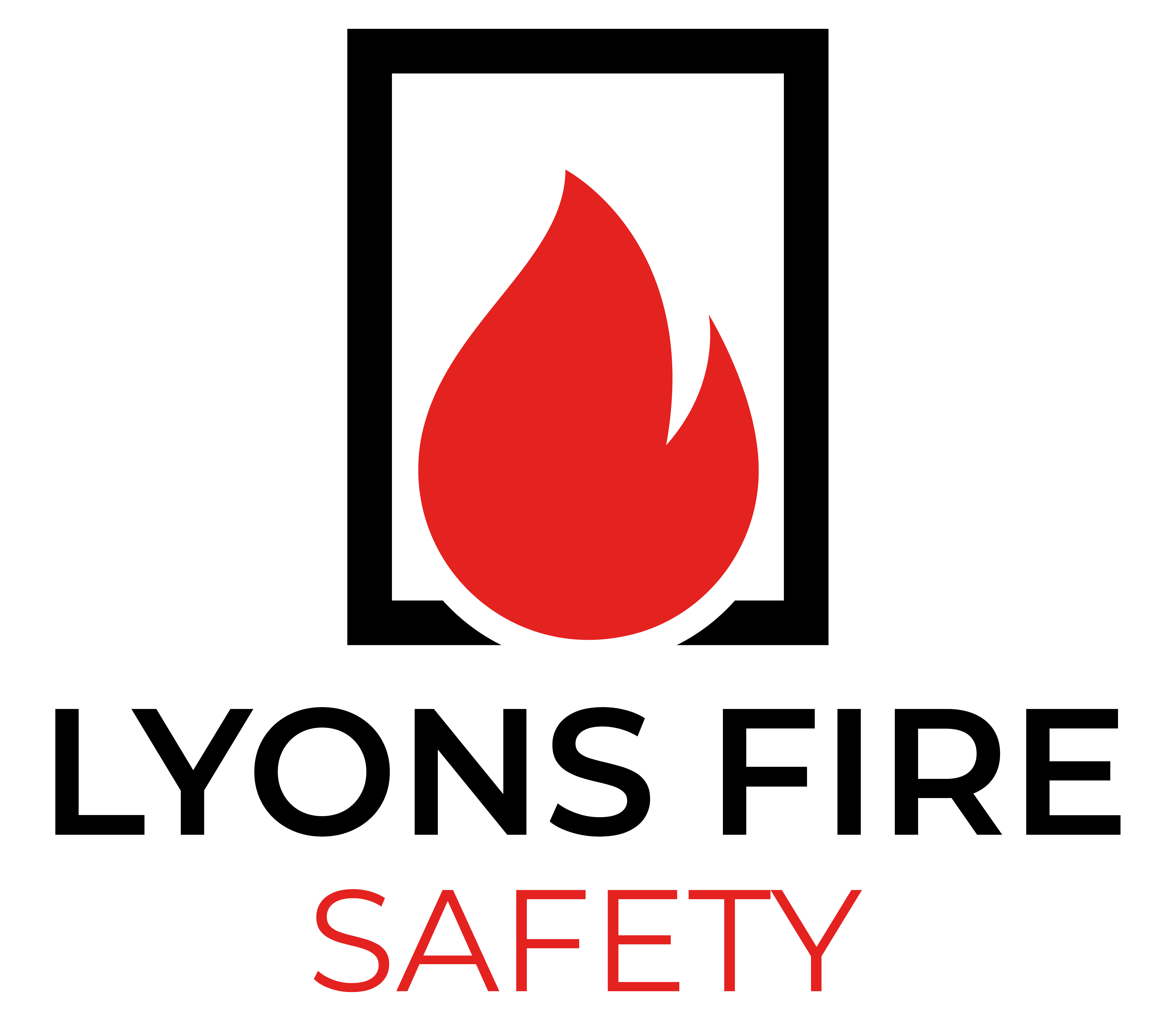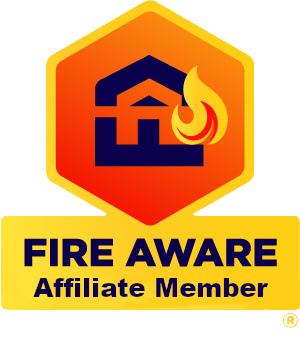Fire Safety in Hotels: Critical Safety Measures for Hospitality Venues
Guest safety is paramount in the hospitality industry. Whether you run a hotel, a banquet hall, a conference centre, or any other venue that hosts guests, you need to be prepared for the possibility of fire. Fire hazards can arise from various sources, such as electrical faults, cooking equipment, candles, smoking, or arson.
Without proper fire safety protocols, you could face devastating consequences, such as property damage, legal liability, reputational loss, or even loss of life.
At Lyons Fire Safety, we are experts in fire safety for hotels and hospitality venues. We have the knowledge, experience, and technology to help you assess, prevent, and manage fire risks in your establishment. We can provide you with comprehensive fire safety inspections, tailored fire safety solutions, and ongoing fire safety support.
In this comprehensive guide, we’ll detail:
- The main fire risks and challenges for hotels.
- The UK fire safety regulations and standards that apply to hotels and hospitality venues.
- The best practices and tips for implementing effective fire safety measures.
- How Lyons Fire Safety can help you achieve and maintain fire safety excellence in your hotel or hospitality venue.
Overview of Fire Risks in Hotels and Hospitality Venues
Hotels and hospitality venues face a variety of fire risks that must be managed effectively. Some of the most common sources of fire hazards are:
Electrical faults
Faulty wiring, overloads, and old systems can cause sparks and short circuits that can ignite nearby materials.
Cooking equipment
Stoves, ovens, and other cooking appliances used in hotel kitchens and banquet halls can generate high temperatures and flames that can start fires, especially if there is grease build up or flammable items nearby.
Smoking
Cigarettes and other smoking materials can easily set fire to combustible materials, such as bedding, curtains, or furniture, if left unattended or discarded improperly.
Combustible materials
Furnishings, bedding, and décor items can act as fuel for fires, especially if they are made of synthetic or flammable fabrics.
Improper storage
Flammable chemicals and other dangerous materials, such as cleaning products, aerosols, or gas cylinders, must be stored safely and securely, away from heat sources and ignition points.
Heating equipment
Faulty heaters and boilers can overheat and malfunction, creating sparks or flames that can spread to nearby materials.
Fire Suppression Systems
The absence of systems like sprinklers and extinguishers can allow a small fire to escalate quickly.
Fires can start in any area of a hotel or hospitality venue, but they are more likely to originate in back-of-house areas, such as kitchens, laundry rooms, or storage rooms, where there are more fire hazards and less supervision. However, fires can quickly spread to other areas, such as guest rooms, corridors, or event spaces, putting guests and staff at risk. Therefore, having robust fire safety systems in place is essential for early detection and suppression of fires.
Related: take a look at our previous blog on fire safety in restaurants for more information. Naturally, there is an overlap between fire safety in hotels and hospitality venues and restaurants
Fire Safety Regulations for UK Hotels and Hospitality Venues
As a hotel or hospitality venue owner or manager, you have a legal responsibility to ensure the fire safety of your premises and the people who use them. You must comply with the relevant fire safety regulations and standards that apply to your type of building and business.
The main piece of legislation that covers fire safety in hotels and hospitality venues is the Regulatory Reform (Fire Safety) Order 2005. This order requires you to:

- Carry out a fire risk assessment of your premises and review it regularly
- Identify and reduce the fire hazards and risks in your premises
- Provide and maintain appropriate fire safety measures, such as fire alarms, fire extinguishers, fire doors, and emergency lighting
- Ensure that there are adequate means of escape in case of fire, such as clear exits, signs, and routes
- Provide fire safety information and training to your staff and guests
- Cooperate and coordinate with other responsible persons who share the premises or the building
- Keep records of your fire safety arrangements and activities
Depending on the size, layout, and use of your premises, you may need to comply with other fire safety regulations and standards, such as:
- Building Regulations 2010 Approved Document B – This document details the fire safety standards for various types of buildings, such as hotels, boarding houses, and residential care homes. It covers aspects such as fire resistance, compartmentation, ventilation, and sprinklers.
- The Smoke-free (Premises and Enforcement) Regulations 2006 – This regulation bans smoking indoors in public places, such as hotels, restaurants, and bars. It aims to protect people from the harmful effects of second-hand smoke and reduce the risk of fire caused by smoking materials.
- The Furniture and Furnishings (Fire Safety) Regulations 1988 – This regulation sets the flammability standards for furnishings, such as mattresses, sofas, curtains, and cushions. It requires that all furnishings comply with the specified ignition tests and display the appropriate labels.
Key Fire Safety Measures for Hotels and Hospitality Venues
Fire safety in hotels and hospitality venues is a complex and challenging issue that requires expert guidance and support. At Lyons Fire Safety, we can help you implement robust fire safety protocols that are tailored to your specific needs and risks. Here’s a few of the key fire safety measures that we can help you:
Fire Alarm Systems
Fire Alarm Systems – A fire alarm system is essential for providing early warning and alerting staff and guests in case of fire. You should have smoke detectors installed in all areas of your premises, including guest rooms, corridors, stairways, kitchens, laundry rooms, and storage rooms. Your fire alarm system should also be connected to a central control panel that can monitor the status of all detectors, identify the location of any fire, and activate the appropriate alarms and suppression systems. You should also have a backup power supply for your fire alarm system in case of a power outage. We can help you design, install, and maintain a fire alarm system that meets the highest standards and regulations.
Emergency Lighting
Emergency Lighting – Emergency lighting is vital for ensuring safe evacuation when the power fails or the visibility is low due to smoke. You should have emergency lighting installed along all exit routes, such as corridors, stairways, and fire exits. You should also have signs that clearly mark the exit routes and the locations of fire equipment.
Fire Extinguishers
Fire Extinguishers – Fire extinguishers are useful for tackling small fires before they get out of control. You should have the right types of fire extinguishers, such as water, foam, dry powder, or carbon dioxide, depending on the nature of the fire hazards in your premises. You should also ensure that your fire extinguishers are maintained and easily accessible, and that your staff are trained on how to use them safely and effectively.
Smoke Ventilation
Smoke Ventilation – Smoke ventilation is important for clearing smoke during fires and aiding escape. You should have smoke vents installed in areas where smoke can accumulate, such as stairways, corridors, and atriums. Your smoke vents may operate automatically or manually, depending on the type and size of your premises.
Fire Resistance and Compartmentation
Fire Resistance and Compartmentation – Fire resistance and compartmentation are important for slowing down fire spread and limiting fire damage. You should have walls and doors that separate different sections of your premises, such as guest rooms, corridors, stairways, kitchens, laundry rooms, and storage rooms. Your walls and doors should have the appropriate fire resistance rating, depending on the type and size of your premises. We can help you install and maintain walls and doors that meet the required fire resistance and compartmentation standards.
Fire Safety Signage
Fire Safety Signage – Fire safety signage is essential for providing clear and consistent information and instructions to your staff and guests. You should have fire safety signage that identifies the exit routes and the locations of fire equipment, such as fire alarms, fire extinguishers, and fire doors. You should also have fire safety signage that instructs your staff and guests on what to do in case of fire, such as how to evacuate, how to report a fire, and how to use the fire equipment.
By implementing key fire safety measures, you can ensure that your hotel or hospitality venue is safe and compliant. You can also protect your guests, staff, and property from fire hazards. Don’t let fire safety be an afterthought in your hotel or hospitality venue. Let Lyons Fire Safety be your trusted partner in fire safety.
Partner with Fire Safety Experts
Don’t leave fire safety to chance. As leading specialists, Lyons Fire Safety provides the expertise and technology for comprehensive risk assessments and fire safety solutions in hotels, conference venues and banquet halls. We can inspect all areas and systems to identify risks, and implement robust, compliant measures to protect your property and guests. Connect with us today to discuss a customised fire safety plan for your hospitality venue:
Phone: 0121 517 0562
Email: david@lyonsfiresafety.co.uk
At Lyons Fire Safety, we strive to create safer environments everywhere. Let us help make your hotel or venue a place of safety and security.


